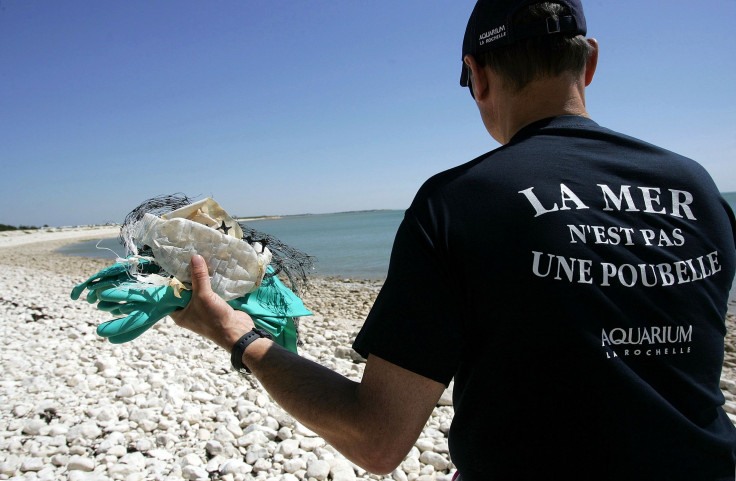Earth’s Oceans Contain 5.25 Trillion Pieces Of Plastic, Weighing About 270,000 Tons: Study

Nearly 5.25 trillion pieces of plastic garbage, weighing 268,940 tons, are estimated to be floating in the world’s oceans, according to a new study, published in the journal PLOS ONE on Wednesday. That much waste can fill more than 38,500 garbage trucks.
According to the study, scientists collected data from 24 expeditions that were conducted over a six-year period between 2007 and 2013 across all five sub-tropical gyres, coastal Australia, Bay of Bengal and the Mediterranean Sea. As part of the study, the researchers used nets on the water's surface to gather pieces of plastic debris. They also used computer models to calculate estimates for tracts of ocean that were not surveyed. A gyre is a system of swirling ocean currents, typically driven by large wind movements.
“Our findings show that the garbage patches in the middle of the five subtropical gyres are not the final resting places for the world's floating plastic trash. The endgame for micro-plastic is interactions with entire ocean ecosystems,” Marcus Eriksen, director of research for the 5 Gyres Institute and the study’s lead author, said in a statement.
Kara Lavender Law of the Sea Education Association in Woods Hole, Massachusetts, who was not part of the study, said that the researchers gathered data for the latest study from the Indian Ocean, the Southern Ocean near Antarctica and the South Atlantic, which had not been covered by previous studies on floating plastic debris, The Associated Press (AP) reported.
Law also said the study could help scientists better understand how plastic is affecting the environment, especially the food chain.
“Am I being poisoned by eating the fish on my plate? We have very little knowledge of the chain of events that could lead to that,” Law told AP. “But it's a plausible scenario that plastic ingested at lower levels of the food web could have consequences at higher levels of the food chain.”
© Copyright IBTimes 2024. All rights reserved.






















